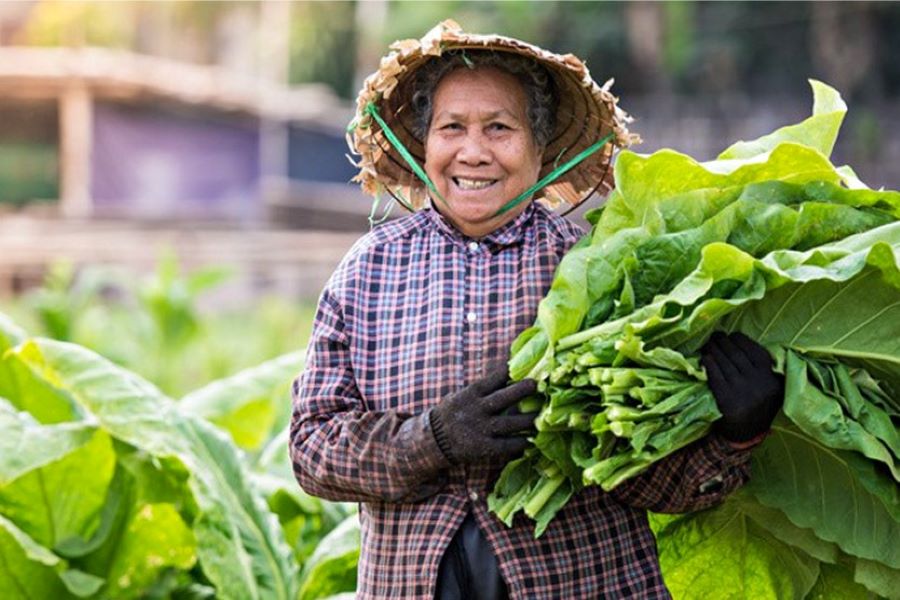Dingdong, Missfresh Surge on Booming Business During Covid Lockdowns

Shares of nation’s two leading online grocers rose sharply on Tuesday, propelled by buying from nearly 200 million Chinese currently confined to their homes
Key Takeaways:
- Investors may be growing more bullish on Dingdong and Missfresh as recent Covid-related lockdowns drive more consumers to buy groceries online
- Both companies trade at relatively low valuations, even after big stock gains this week, as analysts remain bullish on the pair
By Doug Young
It’s not often that we write about companies purely based on big stock movements with no company-specific news in the headlines. But we’ll break with that tradition today with a look at leading online grocers Dingdong (Cayman) Ltd. (DDL.US) and Missfresh Ltd. (MF.US), whose shares both notched significant gains on Tuesday.
While there was no company-specific news from either, the bigger story, of course, is the latest Covid wave surging through China with the arrival of the highly contagious Omicron variant. That surge has prompted a complete lockdown in Shanghai, China’s financial center and largest city with a population of 26 million, that looks set to last at least a couple of weeks.
But Shanghai isn’t the only place experiencing a citywide lockdown. The southern boomtown of Shenzhen and northwestern city of Xi’an, capital of Shaanxi province, also experienced previous similar citywide lockdowns that have now ended. And like Shanghai, the northeastern city of Changchun, capital of Jilin province, remains in complete lockdown as well.
In fact, this commentary is coming to you from Shanghai, where the author has been confined to his home for nearly a week, with at least another week or two likely. A Reuters report this week, citing a Nomura research note, said 23 Chinese cities are currently under total or partial lockdown, with nearly 200 million people affected.
That means there are 200 million people – roughly 14% of China’s population – who must use online channels to get their daily necessities, led by food. That’s the most likely explanation for a rally that saw Dingdong’s shares surge 46% on Tuesday, while Missfresh rose by 14%. Both stocks are up sharply from all-time lows reached just last month, amid a broader rally for U.S.-listed Chinese shares as fears of forced delistings for the group related to U.S.-China tensions start to ease.
Dingdong’s bigger increase appears tied to its base in Shanghai, at the hub of China’s affluent Yangtze River Delta region and now also the epicenter of the country’s worst outbreak since the pandemic began. Shanghai has been reporting more than 13,000 new cases daily in recent days, the vast majority of them asymptomatic. But due to the country’s strict “zero-Covid” policy, the numbers – small by global standards – have prompted an entire citywide lockdown.
Dingdong finds itself at the center of what’s probably the world’s largest citywide lockdown since the pandemic began. The company began its current business in Shanghai in 2017, and has been expanding to other areas since then. Its delivery drivers, with their trademark green pouches on the back of their scooters, are a regular fixture throughout the city.
By comparison, Missfresh is based in Beijing, China’s other megacity, which is currently home to much smaller lockdowns limited to individual residential complexes when new cases are confirmed. Both companies have expanded beyond their initial home bases, though each still counts their city of origin among their strongest markets.
Surging demand
Both companies saw orders surge when the pandemic first began in the first half of 2020, as people largely remained confined to their homes on a more voluntary basis. Many people started buying groceries online at that time, and became fans of the business even after conditions returned to more normal levels due to the convenience and lower prices than those charged in traditional supermarkets and wet markets.
The latest lockdowns are likely to further reinforce that habit, perhaps even among the older generation that still often prefers to buy food in physical markets. That should play to the advantage of both Dingdong and Missfresh, as well as rival services offered by Meituan (3690.HK) and Pinduoduo (PDD.US), while working to the detriment of traditional supermarket operators like Sun Art (6808.HK) and Yonghui (601933.SH).
That may explain why analysts are quite bullish on both Dingdong and Missfresh. Six out of seven polled by Yahoo Finance rate Dingdong either a “buy” or “strong buy”, while the same is true for five out of seven analysts following Missfresh. Here we should note that the analyst community was already quite bullish on this pair of companies even before the current lockdowns, excited by the big growth potential for both.
Dingdong and Missfresh are China’s top direct grocery sellers, with Pinduoduo and Meituan using a different model that relies on third-parties to buy, warehouse and ultimately deliver goods to shoppers. Dingdong is the larger of the direct sellers, and noted in its last earnings report that its Shanghai business is currently operating profitably – a probable factor behind the Tuesday rally – even as the company continues to lose money on an overall basis.
“Shanghai is the first city we entered and has continued innovating and iterating, constructing precedents and experiences for our nationwide operations,” said CEO Liang Changlin in the company’s last earnings report. “We have found the path to profitability in this city and expect the whole Yangtze River Delta to be the next, and the whole company will follow suit soon.”
The company does not break out how much of its business comes from Shanghai in its quarterly reports, and did not disclose any figure in the prospectus from its IPO last year.
The smaller Missfresh is focusing more on higher-margin businesses like ready-made meals and premium private-label products to reach profitability. In the latest example of that, the company said last week that sales of its private label fresh food brand grew 300% in last year’s fourth quarter compared with the first quarter of the same year.
Missfresh is also trying to lower costs by cutting out middlemen from its operations, and currently sources more than 90% of its fresh produce and 80% of all products directly from their origins, much higher than an industry average of 55% in 2020.
Despite their bullish outlook, analysts don’t see either Dingdong or Missfresh becoming profitable this year or next. Investors are also somewhat reserved. Even after the one-day surge for its stock, Dingdong trades at a price-to-sales ratio (P/S) of 0.5, while Missfresh trades at 0.3. But both are still higher than U.S. prepared food delivery specialist Blue Apron (APRN.US), which trades at a P/S of just 0.2.
To subscribe to Bamboo Works free weekly newsletter, click here






